With 9 chapters and 42 articles, the Law on Teachers will take effect from January 1, 2026, affirming a major step forward in institutionalizing the Party and State's policy of honoring, caring for, protecting and developing the teaching staff.
Affirming legal status, protecting teachers' honor
The Law on Teachers for the first time fully establishes the legal status of teachers in both the public and non-public systems. Non-public teachers are no longer simply contract workers, but are recognized as specialized practitioners, with rights and obligations equal to those of their colleagues in public schools.
More importantly, this law clearly stipulates the right to respect, protection of honor and dignity, and a strict mechanism for handling acts that insult teachers, including prohibiting individuals and organizations from spreading information that accuses teachers without an official conclusion from the authorities. This is an important highlight to protect teachers from unreasonable social pressure and maintain a safe and civilized pedagogical environment.
 |
The Law on Teachers will take effect from January 1, 2026, affirming a major step forward in institutionalizing the Party and State's policy of honoring, caring for, protecting and developing the teaching staff. |
Teachers' salaries are ranked highest.
This is a new breakthrough point. The Law stipulates: " Teachers ' salaries are ranked highest in the administrative career salary scale system". In the Draft Decree regulating salary policies, allowances, support and attraction regimes for teachers in the draft Law on Teachers, the Ministry of Education and Training plans to advise the Government to rearrange the salary tables of a number of teacher positions (such as preschool teachers, general education teachers, university preparatory teachers, vocational education teachers grade IV...) to ensure consistency in the salary tables applied to professional positions of teachers and civil servants in other sectors and fields; at the same time, ensuring the living standards of teachers, helping teachers feel secure in their work and contribute to the cause of education.
In addition, according to the law, teachers are also entitled to additional special allowances, responsibilities, incentives, subsidies for disadvantaged areas, subsidies for inclusiveeducation , seniority, mobility... contributing to increasing their overall income.
Support policy, attracting high quality human resources
The law expands support and attraction policies such as: Support for public housing or rent in extremely difficult areas; periodic health check-up allowances; priority recruitment for excellent teachers in remote areas. In particular, preschool teachers can retire up to 5 years earlier without reducing their pension (if they have paid social insurance for 15 years), while professors, associate professors, and doctors can extend their retirement age to retain talent.
Professional standardization, improving team quality
One of the fundamental changes is the consolidation of two systems of professional standards and professional titles into a unified competency standard for the entire teaching staff. This not only creates a common quality level between public and private teachers, but also increases transparency in recruitment, assessment and training.
The first time to legalize teaching ethics
For the first time, teachers' ethics are codified in law with specific rules of conduct in relations with students, colleagues, students' families and society. The law defines the responsibility of setting an example as an inseparable part of the professional activities of teachers, demonstrated through exemplary conduct, integrity and dedication in teaching and social behavior.
Notably, the law stipulates a mechanism to protect teachers from acts of violating their honor, dignity, and reputation, especially prohibiting the dissemination of false information on social networks before there is an official conclusion. These acts will be handled according to the provisions of the law.
In addition to the right to protection, teachers also have the responsibility to maintain professional ethics. Strictly handling violations contributes to raising the status of teachers, while maintaining pedagogical standards in the educational environment.
Delegate initiative to the education sector
A notable new point is that the law assigns the right to recruit teachers to the education sector, clearly decentralizing to autonomous institutions such as universities and vocational education. The Ministry of Education and Training is assigned the responsibility of developing a development plan and arranging teacher staffing nationwide, thereby resolving the situation of local teacher surplus and shortage that has lasted for many years.
Compared to the past, teachers were mainly regulated through the Law on Civil Servants or sub-law documents, which often did not reflect the characteristics of the profession. With the Law on Teachers, for the first time, the teaching profession has its own law, its status is elevated, its rights are clear, its responsibilities are transparent, contributing to changing the way society views teachers.
When the law comes into effect, teachers will enjoy comprehensive benefits and be more closely protected, while also having to adhere to stricter ethical and professional standards. This is a strategic and systematic investment in the key force of the education sector.
Khanh Ha
*Please visit the Science Education section to see related news and articles.
Source: https://baodaknong.vn/luong-nha-giao-duoc-xep-cao-nhat-trong-he-thong-thang-bac-luong-hanh-chinh-su-nghiep-255695.html
















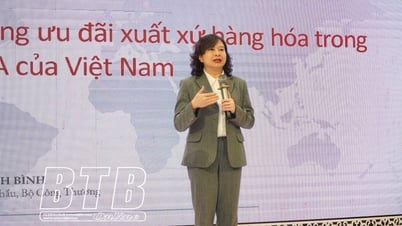






























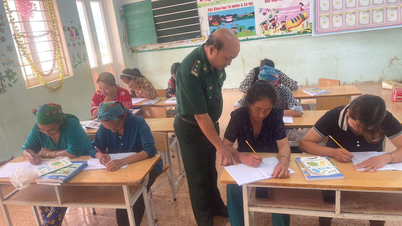
















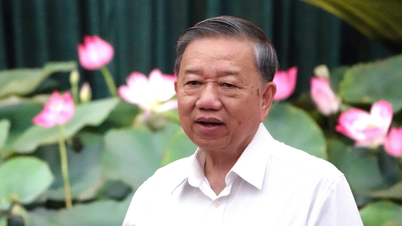





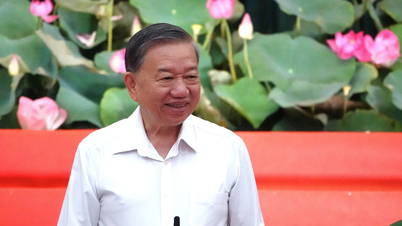






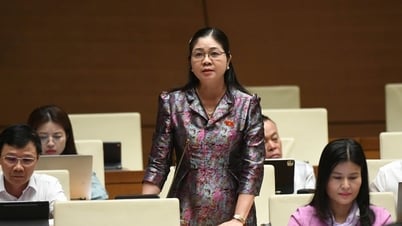
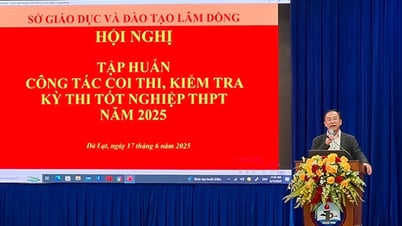

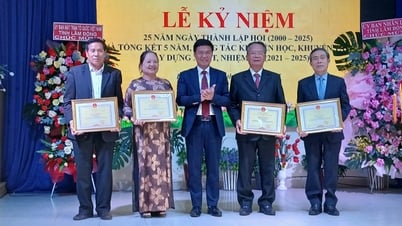



















Comment (0)